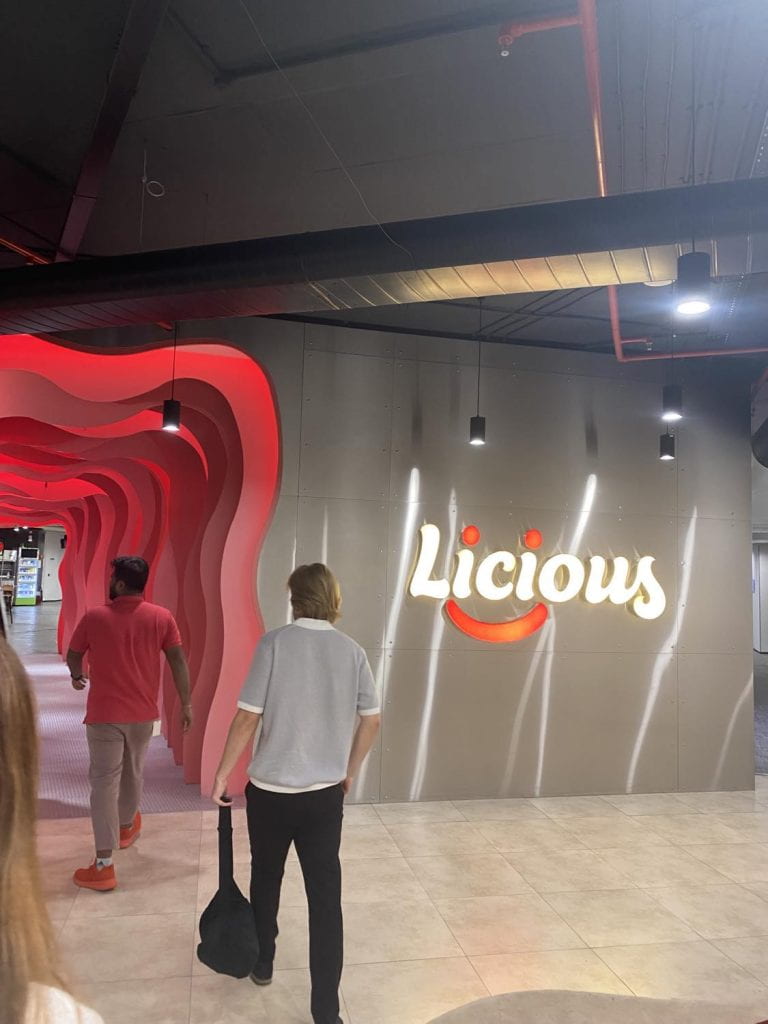As we headed into the second and third week of our immersive learning experience in India, I was lucky enough to visit a few Indian start-ups and businesses. It has been astonishing to witness first hand the Indian entrepreneurial mindset, which exemplifies many ideal traits in successful innovators. It has also been interesting to reflect upon the similarities and differences between New Zealand and Indian entrepreneurs.
Infosys – Mysore Campus
The campus at Infosys Mysore was very impressive, but the story behind the founders who began the now publicly-listed company in 1981 was the biggest takeaway from the visit. An innovative group of seven engineers with $250 seed capital identified a key gap in the tech consulting market. Today, Infosys is a stellar example of Indian innovation that has a valuation of US$18 billion. It was a beautiful underdog story: the seven engineers believed that they had the expertise to serve a global market, and took great risks to reap great reward.
The main purpose of our visit was to understand the training that Infosys provides to recent engineering graduates. I was impressed by how Infosys is investing in both the hard and soft skills of young Indian people, whether their students go on to work at Infosys or not. A wealth of technical skill in India provides fertile grounds for entrepreneurship to bloom. From an equity perspective, I can only imagine that the Infosys graduate programme levels the playing field for many aspiring engineers. While Bangalore is known as the “Silicon Valley of India”, I saw much aspirational likeness to Silicon Valley in Mysore: an abundance of technical skill and strong networks foster momentum in the start-up ecosystem.
Licious – Bangalore
Conceptually, Licious is a shining example of what successful ideation looks like. Something I was curious about before coming to India was how the large Indian population impacts start-ups. Licious provides online ordering of fresh meat and fish products, and is the first Indian direct-to-consumer unicorn (valued at USD$1.5 Billion). Eighty percent of Indian people consume meat, but much of the meat and fish suppliers (such as wet markets) do not uphold reliable food safety standards. Licious’ direct delivery service provides extra security in food safety for Indian meat eaters. The founders of Licious have solved a serious and pervasive problem in the everyday lives of a huge market of Indian people.
I loved seeing this innovation happen in a domestic market so much larger than New Zealand’s. The opportunity for strong market validation is exciting. However, there is nuance within this large Indian market. The team at Licious explained how each region requires new market validation. For example, the cuisine that we have been eating in South India has changed as we migrate North. While the large population is a positive attribute of the Indian start-up ecosystem, it does add new complexities to the scaling of Indian businesses.
Something I loved about the team at Licious was the synergy that they had. This stems from their clear vision and direction that enables them to practice efficient decision making. Risk taking is something that I personally find difficult in my own entrepreneurial ventures. The Licious entrepreneurs are risk takers, but it was principled in a way that I hadn’t realised before. The Licious team talked about their number one “non-negotiable”: food safety, particularly around the food temperature.
They told us a story of when they launched in a new city and the refrigeration was one degree celsius above their standards. They could choose between selling the goods anyway, or sticking to their vision of providing Indians with a guarantee of safe food. The food was discarded: their principles enabled clear decision making around risks they were and were not willing to take. Conversely, during the Covid-19 crisis, the Licious team immediately made the difficult decision to move into close accommodation so they could continue their teamwork and care for their workers. This was a risk the Licious team was willing to take, guided by their values of looking after the safety of their workers too. This taught me that risk taking in entrepreneurship is not impulsive. Alongside expert advice, risk taking is ultimately guided by the “non-negotiables” and values of the start-up.

Mitti Cafe – Mumbai
Alina Alam exemplifies the beautiful heart that makes a great social entrepreneur. Alina founded Mitti Cafe, which celebrates the “magic of abilities” by hiring people with disabilities in the cafes. Alina has a unique inner drive to create social change. She was empathetic towards the exclusion of people with disabilities in everyday society, and she channeled this empathy to take action. Alina is a leader of love and care, which is a value that I have found to be strong in Indian locals who have been unfailingly hospitable to our PMSA cohort. Not only did she believe that she could make a difference through becoming a founder, she believes in the abilities of the team around her. We met with some of the workers with disabilities, who she encouraged to speak confidently to us students. The self belief of the workers and Alina’s faith was radiant. Alina’s workers know they are loved, included and capable in their workplace.
This is meaningful entrepreneurship, this is the hospitality of India at its finest.

Indian Entrepreneurs: Powerful Aspiration
There is something in common with all the entrepreneurs I have seen in India: an immense sense of aspiration. Above all things, these entrepreneurs all began with a vision of a better India. From tech, to food, to equity and inclusion, Indian entrepreneurs are driven problem solvers and dreamers. The aspiration of improving your home nation is something that New Zealanders should be inspired by. It is easy to imagine a “better New Zealand”, but it is brave to take action. Studying India has provided a masterclass in entrepreneurship.
